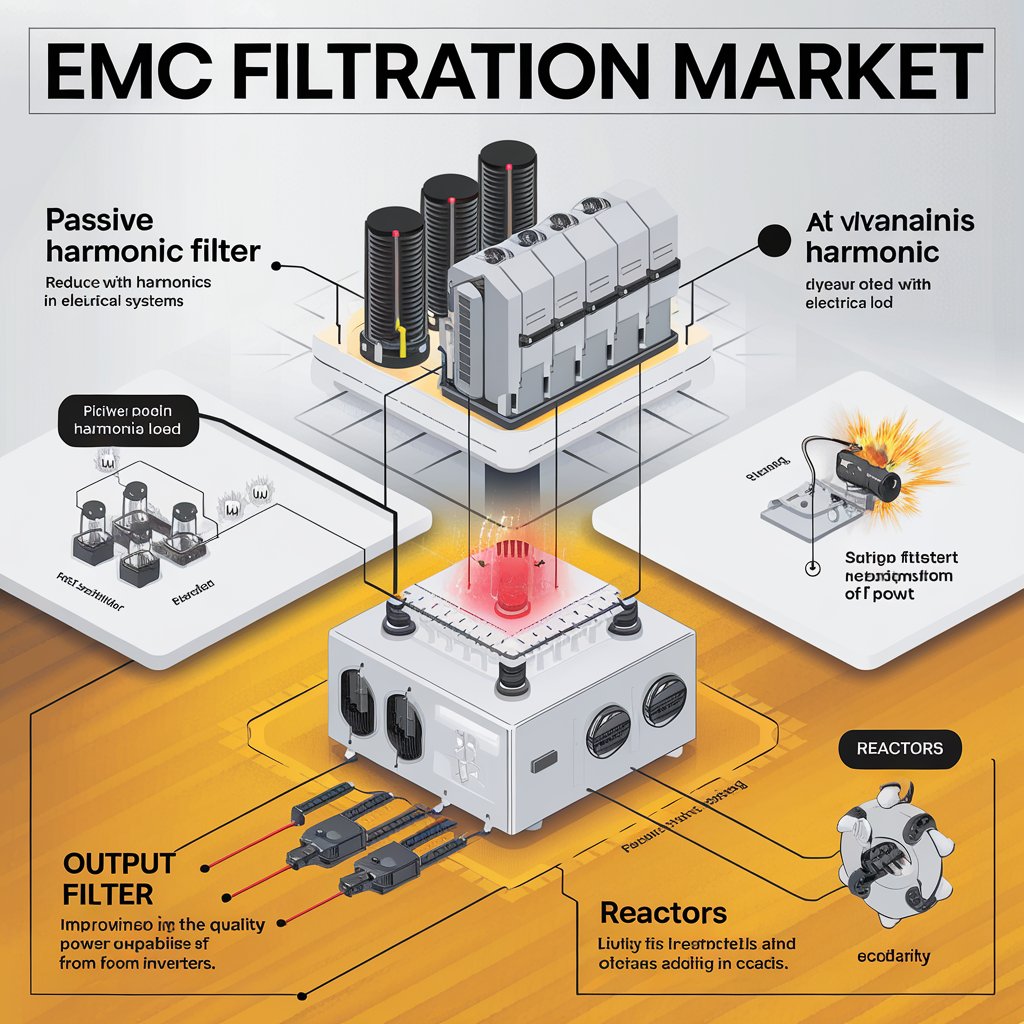As electronic systems become increasingly embedded in modern life, the need to mitigate electromagnetic interference (EMI) has never been more critical. Electromagnetic compatibility (EMC) filtration has emerged as a foundational technology to ensure that electronic devices operate reliably without causing or falling victim to interference. The EMC filtration market is witnessing significant growth, driven by advancements in automotive electrification, 5G rollout, industrial automation, and the ongoing expansion of connected devices worldwide.
Rising Demand Across Industries
One of the major forces propelling the EMC filtration market is the rapid electrification of the automotive sector. Electric vehicles (EVs), hybrid electric vehicles (HEVs), and advanced driver assistance systems (ADAS) generate high-frequency signals and noise that can interfere with other vehicle electronics. EMC filters are crucial in maintaining the reliability of navigation systems, battery management units, infotainment, and safety-critical controls in modern cars.
In the industrial sector, the proliferation of automation technologies and robotics adds layers of complexity to electromagnetic environments. Industrial control panels, motors, and power electronics require stringent EMC compliance to ensure uninterrupted operations. Furthermore, as industries increasingly adopt Industry 4.0 and smart factory concepts, the use of EMC filters in machinery, programmable logic controllers (PLCs), and industrial PCs is growing substantially.
Download PDF Brochure @ https://www.marketsandmarkets.com/pdfdownloadNew.asp?id=172300360

5G and Telecom Infrastructure Expansion
The telecommunications industry represents another significant application for EMC filtration technologies. The deployment of 5G networks involves higher frequency bands and denser infrastructure, including small cells, towers, and distributed antenna systems. These systems must be protected from EMI to maintain signal integrity, reduce noise, and prevent disruptions in data transmission. EMC filters are essential components in telecom base stations, fiber-optic communication modules, and satellite systems, safeguarding the flow of massive amounts of data in a globally connected world.
Technological Advancements in EMC Filtration
With the rise in complex electronics, EMC filtration technologies have evolved to meet more stringent standards. Advanced filter designs, such as feedthrough capacitors, ferrite bead filters, and multi-stage filtering systems, offer greater attenuation of EMI across wide frequency ranges. Manufacturers are focusing on miniaturization without compromising filtering capabilities, catering to space-constrained applications in wearables, medical devices, and IoT modules.
Materials science also plays a critical role in the development of more efficient EMC filters. Innovations in ferrite materials and conductive coatings are enhancing the performance of filters across challenging electromagnetic environments, providing consistent results even in harsh industrial or automotive conditions.
Global Market Outlook
The EMC filtration industry is projected to reach USD 1.59 billion by 2030 from USD 1.26 billion in 2025, at a CAGR of 4.7%., with key markets including North America, Europe, and Asia Pacific. The Asia Pacific region, led by China, Japan, and South Korea, dominates the global market due to robust automotive production, a strong electronics industry, and extensive telecommunications infrastructure expansion.
Moreover, regulatory mandates, such as those from the Federal Communications Commission (FCC), CISPR, and IEC standards for EMC compliance, are driving greater adoption of EMC filtration solutions across industries.
As the world becomes increasingly digital and electrified, EMC filtration is set to remain at the core of ensuring reliable, interference-free operations across critical sectors. From the growing use of EVs to the transformative potential of 5G and smart factories, EMC filters play an essential role in safeguarding the performance of modern electronic systems. For manufacturers, investing in advanced EMC solutions represents a key strategy in aligning with global technological trends and regulatory requirements.
Opportunities in the EMC Filtration Market
